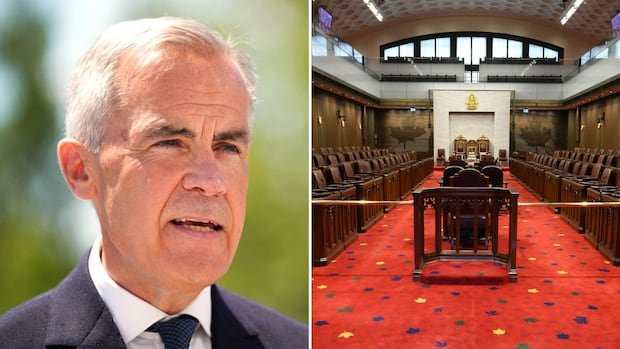Former Canadian Prime Minister Justin Trudeau made significant changes to the Canadian Senate by appointing Independent senators and removing partisan elements. This move, which broke a long-standing tradition, received mixed reactions from senators, with some arguing that the Senate has become less effective and more costly under the new system.
Trudeau’s appointees believe that the reforms have helped the Senate move past previous scandals and focus on the country’s best interests rather than party politics. However, there is ongoing debate within the Senate about the effectiveness of these changes over the past decade.
The current process involves an outside panel recommending potential senators, but the final decision still rests with the prime minister. Initially, Trudeau appointed mostly non-partisan individuals, but as his party faced challenges, he began appointing more Liberals to the Senate.
Prime Minister Mark Carney has made changes to reverse some of Trudeau’s policies, leading to speculation about the future of the non-partisan approach in the Senate. Despite differing opinions among senators, there is a consensus that the Senate has become more active in amending legislation and focusing on national interests rather than party lines.
In an interview, House leader Steve MacKinnon hinted at potential future changes in the Senate, emphasizing the importance of aligning senatorial appointments with public opinion and government objectives. However, there are concerns about a potential resurgence of partisan caucuses within the Senate, with some senators advocating for maintaining the current non-partisan approach.
While some senators support the current non-partisan model, others, like Quebec Senator Leo Housakos, believe that injecting more partisanship into the Senate could improve its influence. However, senators like Independent Senator Paula Simons argue that the Senate’s reputation has improved under the new system and reversing these reforms would be detrimental.
There are also discussions about the proliferation of Senate public bills and the need for better regional representation in the Senate. Senators like Pamela Wallin advocate for a return to the Senate’s core role of providing sober second thought on legislation and addressing regional disparities in Senate representation.
Despite calls for change, there is reluctance to open discussions on constitutional amendments to address these issues. Western provinces, in particular, feel underrepresented in the Senate, highlighting the need for further reform in the future.
Overall, the Canadian Senate is undergoing a period of transformation, with debates ongoing about the effectiveness of the current non-partisan approach and the need for potential changes to improve representation and legislative processes.

